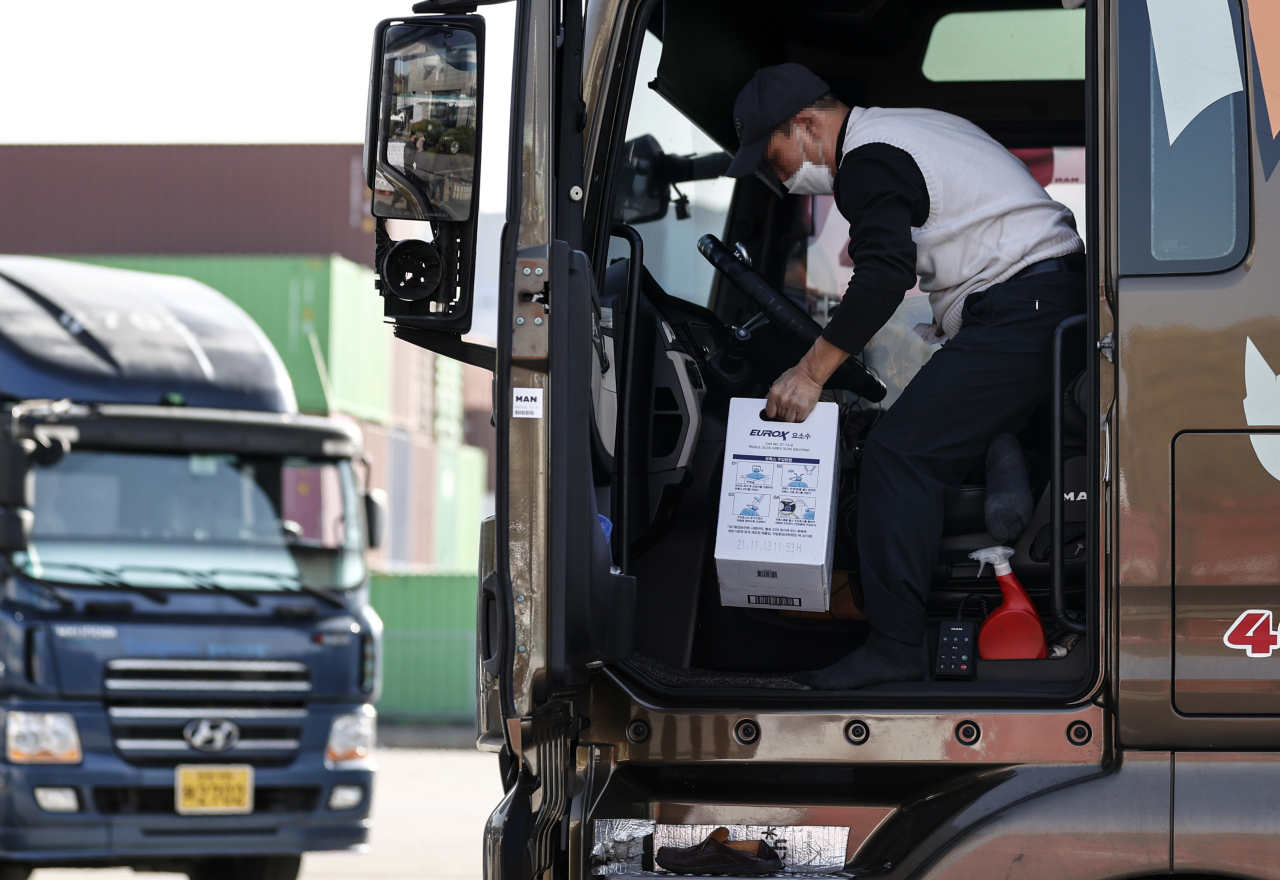 |
A truck driver loads a box of urea solution, which is needed in diesel vehicles to cut emissions, at a gas station in Uiwang, south of Seoul, on Tuesday. (Yonhap) |
South Korea has expanded a newly minted task force on economic security to better cope with supply chain disruptions and detect emerging risks at an early stage, the foreign ministry said Friday.
Lee Seong-ho, deputy minister on economic diplomacy, will lead the task force composed of three subdivisions -- supply chain, digital and new technologies, and environmental, social and governance (ESG) -- the ministry said.
The team was launched under the ministry's bilateral economic diplomacy department earlier this month amid a supply crunch of urea solution, which is used in diesel vehicles to cut emissions and mostly imported from China.
The ministry said it upgraded the chief's level and expanded its scope in response to growing calls for the government's bigger role in securing a stable supply chain of key materials and monitoring potential risks.
"In the first meeting, the task force reviewed the urgent supply chain issues, including the urea solution, and discussed comprehensive economic security issues, which could arise from the global competition, digital transformation and green energy transition," the ministry said in a release.
It added the task force will detect external risks at an early stage and analyze them to coordinate pan-governmental efforts to better handle supply chain challenges.
In the long term, the ministry plans to develop it as "an external risk management system" in cooperation with overseas embassies and trade promotion embassies to better promote the nation's economic security interests, it noted.
The government is also preparing to launch a system to monitor high-risk materials to ensure stable supplies of raw materials highly dependent on imports, mostly from China, and prevent the recurrence of a crisis similar to the urea solution supply crunch. (Yonhap)








